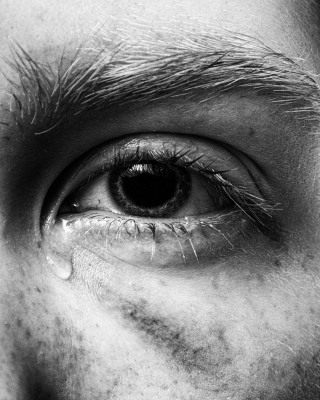Understanding Chronic & Complex Trauma: Causes, Effects & Paths to Healing
In a hurry? Chronic or complex trauma can leave you anxious, on edge, or shut down, but science‑backed therapies and the right support network can help you reclaim your life. Scroll to How Therapy Helps for next steps.
What Counts as Trauma?
Trauma is any experience that overwhelms your ability to cope at the time it happens. It’s shaped by circumstances (what happened) and resources (age, health, safety, social support). Examples include:
- assault, violence or neglect
- bullying or emotional abuse
- accidents and sudden loss
- war, displacement or disaster
When the nervous system can’t process the event, the experience leaves an emotional and physiological wound that lingers.
 Chronic vs Complex Trauma
Chronic vs Complex Trauma
- Chronic Trauma – Repeated exposure to harmful events (e.g., prolonged bullying, domestic violence)
- Complex Trauma – Chronic trauma inside trusted relationships – such as ongoing childhood abuse – that adds layers of betrayal and shame.
All complex trauma is usually chronic, but the relational betrayal makes recovery more challenging.
Signs You Might Be Living With Unresolved Trauma
Mind & Emotions
- Hypervigilance, irritability or sudden emotional shutdown
- Flashbacks, nightmares or dissociation
- Persistent anxiety or low mood
Body & Brain
- Tense muscles, digestive issues, sleep disruption
- Elevated cortisol and chronic inflammation
- Feeling ‘wired and tired’
Why Do Some People Heal Faster?
Resilience is less about “toughness” and more about resources and timing:
- timely emotional support after the event
- sense of safety in current surroundings
- access to accurate information and professional help
- overall health and coping skills
Your First Steps Toward Recovery
- Safety first: If current circumstances keep you unsafe or triggered, seek practical support to change them.
- Resource the basics: steady sleep, balanced meals, movement and calming routines are the foundation for deeper work.
- Name the wound: acknowledging that what happened was traumatic interrupts self‑blame and minimisation.
Healing is non‑linear: expect progress, plateaus and occasional setbacks.
 How Therapy Helps (and What to Expect)
How Therapy Helps (and What to Expect)
Professional support offers two big advantages:
- A regulated space where your nervous system can relax enough to process memories.
- Evidence‑based techniques proven to reduce intrusive memories and rebuild self‑trust.
At Harley Therapy clinicians use modalities recommended by NICE for trauma, including:
- Trauma‑Focused CBT
- EMDR
- Schema Therapy or DBT for complex childhood trauma
- Integrative psychodynamic work
→ Learn more or book a session: Trauma Counselling at Harley Therapy, London & Online
How To Build Resilience Day‑to‑Day
- Set healthy boundaries and practise saying no
- Grounding techniques: box breathing, 5‑senses check‑in
- Regular movement: walk, yoga, or gentle stretching
- Purposeful connection: one supportive conversation daily
- Nature time: even 10 minutes outdoors lowers cortisol
Key Takeaways
- Trauma is an injury, not a character flaw.
- Chronic trauma repeats; complex trauma adds relational betrayal.
- Your body and brain adapt in protective, but exhausting ways.
- Healing begins with safety, resources and compassionate support.
- Evidence‑based therapy plus daily resilience habits make recovery realistic.
Ready to Take the Next Step?
Book online or call 0345 474 1724 to match with an accredited trauma specialist. You deserve to move from survival to living fully.
Disclaimer: This article is for education only and is not a substitute for personalised medical advice.




